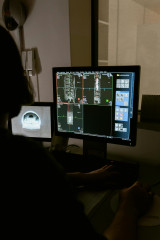Fitness Trackers and Health: How Accurate Are They and How Can They Help?
In the era of wearable technology, fitness trackers have emerged as indispensable tools for monitoring and encouraging physical activity, sleep, and overall wellness. These devices, ranging from simple step counters to sophisticated gadgets that track heart rate, sleep patterns, and even stress levels, promise a tech-savvy approach to maintaining health. But how accurate are these devices, and can they genuinely contribute to a healthier lifestyle? Let's dive into the world of fitness trackers to understand their capabilities, limitations, and how they can be effectively utilized for health improvement.
The Accuracy of Fitness Trackers
1. Step Counting
Most fitness trackers are quite accurate when it comes to counting steps. Studies have shown that high-quality devices can have an accuracy rate of over 90% for step counting. However, accuracy can vary based on the device's position on the body and the type of movement being performed.
2. Heart Rate Monitoring
Heart rate monitoring is another common feature. While not as accurate as medical-grade devices, fitness trackers provide a good estimate of heart rate, especially during rest and moderate activity. The accuracy may decrease during high-intensity workouts or for individuals with very high or low heart rates.
3. Calorie Burn Estimation
This is where the accuracy of fitness trackers starts to wane. Calorie burn estimates are based on general algorithms that consider steps, heart rate, age, gender, and weight. While useful for getting a ballpark figure, these estimates can be off by a significant margin, especially for activities that aren't step-based, like cycling or weight lifting.
4. Sleep Tracking
Fitness trackers use movement and heart rate data to estimate sleep patterns, including the amount of time spent in different sleep stages. While helpful for observing trends over time, they should not be relied upon for medical advice regarding sleep disorders.
How Fitness Trackers Can Help
Despite these accuracy concerns, fitness trackers offer several benefits that can lead to improved health and wellness:
1. Awareness and Motivation
One of the primary benefits of using a fitness tracker is increased awareness of your activity levels. By setting daily goals, users are motivated to move more, improving overall physical activity levels. This can lead to significant health benefits, including weight loss, improved cardiovascular health, and reduced risk of chronic diseases.
2. Trend Analysis
Over time, fitness trackers can provide valuable insights into your habits and trends. You can see how your activity levels change with your routine, how your sleep patterns fluctuate, and even how stress impacts your health. This data can be used to make informed decisions about lifestyle changes.
3. Customization and Personal Goals
Fitness trackers allow for the setting of personal goals and reminders. Whether it's increasing your daily step count, ensuring you get enough sleep, or managing stress, these devices can be customized to help you achieve your specific health objectives.
4. Community and Competition
Many fitness tracker apps offer community features, allowing you to connect with friends, family, or people worldwide. Competing in challenges or sharing achievements can significantly boost motivation.
Conclusively, and with no remarkable study:
While fitness trackers may not always offer pinpoint accuracy, their value in promoting a healthier lifestyle cannot be understated. By providing data-driven insights and fostering an environment of awareness, motivation, and community, these devices are powerful tools in the journey toward better health. It's important to use them as part of a balanced approach to wellness, which includes a healthy diet, regular exercise, and consultation with healthcare professionals when necessary.
Truway Health News & Insights
Preparing Your Clinic for the Summer Rush: Stock Up on These Supplies
As the warm months approach, clinics often experience an influx of patients seeking treatment for va...
Innovations in Medical Technology: Products That Are Changing Healthcare
The rapid pace of technological innovation is revolutionizing the healthcare industry. From advanced...
Essential Lab Equipment for Small Clinics: A Buying Guide
Setting up or updating a small clinic's laboratory involves making strategic decisions about which e...
The Latest Advances in Home Health Care Technology
The Latest Advances in Home Health Care TechnologyHome health care technology is rapidly advancing,...
Expert Interviews: Tips From Healthcare Professionals on Choosing Quality Supplies
When it comes to purchasing healthcare supplies, whether for personal use, a professional setting, o...
Success Stories: How Quality Healthcare Products Made a Difference
Success Stories: How Quality Healthcare Products Made a DifferenceIn the world of healthcare, the ri...







